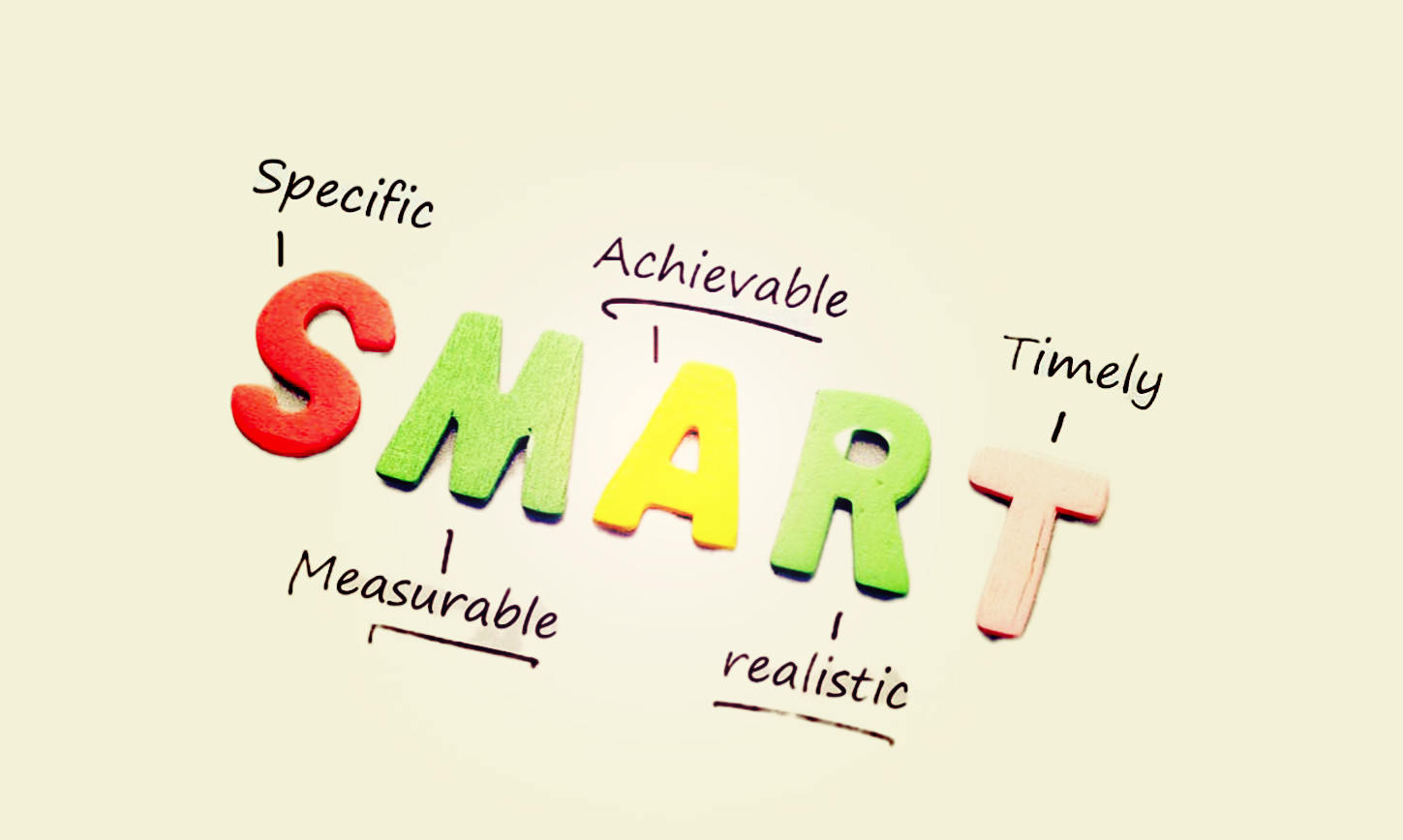Setting goals is an essential aspect of personal and professional development, and SMART goals provide a framework for effective goal setting. SMART is an acronym that stands for Specific, Measurable, Achievable, Relevant, and Time-bound. In this article, we will explore the concept of SMART goals, their significance, and how to set them to maximize your chances of success.
What are SMART Goals?

SMART goals are a methodology for setting objectives that are clear, well-defined, and actionable. Let's break down each element of the SMART acronym:
1. Specific:
Goals should be specific and focused. Instead of a vague goal like "improve my writing skills," a specific goal could be "complete a writing course to enhance my grammar and vocabulary."
2. Measurable:
Goals should be measurable, allowing you to track progress and determine when they have been achieved. For instance, if your goal is to lose weight, a measurable goal would be "lose 10 pounds in three months."
3. Achievable:
Goals should be realistic and attainable. Setting goals that are too far-fetched can lead to disappointment and demotivation. Ensure your goals are challenging yet within reach, considering your abilities, resources, and constraints.
4. Relevant:
Goals should align with your values, long-term objectives, and overall aspirations. Ensure that the goals you set are meaningful to you and contribute to your personal growth or professional advancement.
5. Time-bound:
Goals should have a defined timeframe for completion. This helps create a sense of urgency and prevents procrastination. For example, "launch my online store within six months" sets a clear deadline for your goal.
Why are SMART Goals Important?
SMART goals provide several benefits:
1. Clarity and focus:
SMART goals help clarify your intentions, providing a clear direction and focus for your efforts.
2. Motivation and commitment:
When goals are specific and measurable, they become more tangible and easier to visualize, increasing your motivation to work towards them. The time-bound element creates a sense of urgency, promoting commitment and dedication.
3. Progress tracking:
The measurable aspect of SMART goals enables you to monitor your progress objectively. It allows you to evaluate whether you're on track or need to adjust your strategies.
4. Increased success rates:
By setting realistic and achievable goals, you enhance your chances of success. SMART goals encourage you to set milestones and take consistent action toward your objectives.
How to Set SMART Goals:
Here's a step-by-step process for setting SMART goals:
1. Identify your objectives:
Determine what you want to achieve. Whether it's personal growth, career advancement, or health-related, clearly define your goals.
2. Make them specific:
Refine your goals by making them specific and well-defined. Avoid vague statements and be precise about what you want to accomplish.
3. Ensure measurability:
Establish concrete criteria to track your progress and measure success. Define metrics or indicators that can objectively assess your achievements.
4. Evaluate achievability:
Assess the feasibility of your goals. Consider your resources, skills, and potential challenges. Ensure they are realistic and within reach.
5. Verify relevance:
Reflect on the relevance of your goals to your overall aspirations and values. Ensure they align with your long-term objectives and contribute to your growth and fulfillment.
6. Set deadlines:
Assign a timeframe to each goal. This provides a sense of urgency and creates a timeline for your actions.
7. Break them down:
Divide your goals into smaller, manageable tasks or milestones. This makes them less overwhelming and helps you track progress effectively.
8. Track and adjust:
Continuously monitor your progress, measure your achievements, and make adjustments as needed. Regularly evaluate whether your goals are still relevant and adjust them accordingly.
How to Set SMART Goals much smarter:
Goal management software plays a crucial role in supporting the process of setting SMART goals. By utilizing goal management software, you gain a supportive digital environment that guides you through the SMART goal-setting process. It streamlines the implementation of each SMART element and provides the necessary features and functionalities to enhance your goal-setting effectiveness.
With the aid of goal management software, you can set SMART goals with greater precision, clarity, and accountability. The software serves as your digital companion, assisting you in crafting goals that are specific, measurable, achievable, relevant, and time-bound. Embrace the power of technology and leverage goal management software to empower your goal-setting journey and achieve the success you desire.
